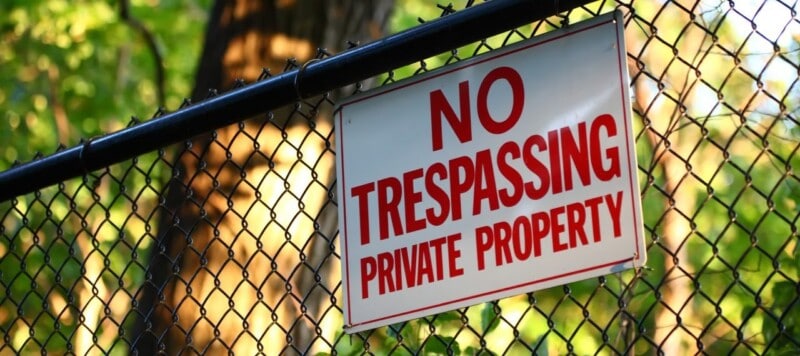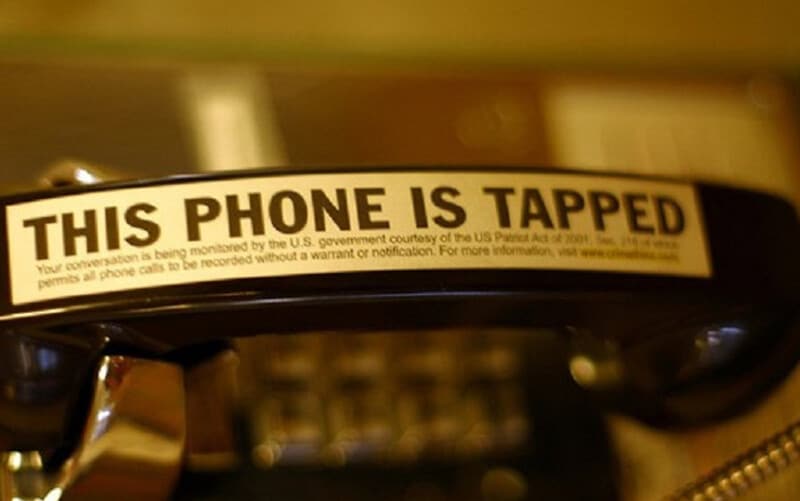Here is our list of 5 things that are illegal in all 50 states
In the last post, we discussed 5 things that a private investigator is legally allowed to do. In this post, we will flip the script and discuss some things that a private investigator can NEVER do, under any circumstances. There are many legal grey areas surrounding private investigators (many of whom take full advantage of this fact), but there are state and federal laws that are in place to protect the public.
If you are a member of the general public and you see any of the behaviors on this list, call the police and the state regulatory board for your state. The behaviors on this list are inexcusable, unethical, and highly illegal. If you are in the business and you use these tactics, give yourself a gut check, because you are in this business for the wrong reasons. Here are five things a private investigator can not do, under any circumstances.
1. A private investigator can not enter your private property under any circumstances.

This is rule #1 for a reason. This one will get a private investigator in a world of trouble faster than almost anything else. We are bound by the same trespassing laws as anyone else. That means that we cannot break into someone’s home, office, or vehicle to “get dirt” on him or her. We can’t even step foot on your property without your permission. We can’t place secret, covert, hidden cameras on your porch or peek into your windows and videotape you watching tv (or doing anything else). Your property, your privacy, your secrets. We can’t get any of it.
The only exception to this rule is to serve process. Process servers can knock on your door (just like anyone else) and attempt to get you to answer. But they can never enter your home without your permission. Process servers cannot, however, enter a property that has a NO TRESPASSING sign posted. If you don’t want anyone on your property and make that wish known by placing a sign, it’s off-limits.
2. A private investigator cannot access your medical, financial, or educational records.
A private investigator has access to a wide array of information. However, there are certain things that are protected by the federal government and are, therefore, out of reach. Medical (HIPAA), financial, and educational (FERPA) records fall into that category. It is a felony for anyone other than that individual to access these records. Any private investigator who tells you that they can get these records is either a liar or a criminal and you should run.
3. We cannot misrepresent ourselves as a member of law enforcement (unless, of course, we are).
This one is also a big no-no. Thanks to the movies and television shows (Magnum, P.I. anyone?), the general public has come to associate private investigators with law enforcement and many attribute the same authority and power to private investigators as members of law enforcement. This is simply not true.
With very few exceptions, private investigators are bound by the same laws and restrictions as everyone else. This means that we cannot say we are police officers; it means we cannot wear clothing identifying us as law enforcement; it means we cannot carry badges stating that we are a member of the local police force in an attempt to manipulate someone into complying with our “orders.”
4. We can’t “hack” into someone’s electronic devices (cell phones, tablets, etc.).

Even the FBI can’t brute force your cell phone and get access without your authorization (or help). Remember that big case a while back where Apple refused to unlock the iPhone of the shooter at a naval base in Pensacola, Florida? Well, there is a reason why. Law enforcement did not possess the means to bypass software security measures and force open someone’s phone or tablet or computer.
This is not only illegal, but it is also very difficult to do, and most private investigators simply do not have the resources or the expertise (or the legal authority) to do it. Without a court order or the user’s express permission, there are no legal means of gaining access to another person’s private electronic devices. It just can’t be done, and no investigator who values his or her license will touch it with a ten-foot pole, so stop asking us to do it.
5. We cannot wiretap someone’s phone.

This, again, violates federal law. In some states, it is necessary to notify one party of the recording; in other states, both parties must be made aware. Wiretapping violates both of these mandates and, without a court order, is illegal in all fifty states.
In line with this, we also can’t install hidden cameras in someone’s house or hotel room without their knowledge and consent (which would, of course, invalidate the entire point of a “hidden” camera). So please don’t ask us to do it.
So, that was five things that a private investigator can not do under any circumstances. Laws vary by state, but the things we discuss here are illegal in all fifty states. If any private investigator ever offers you the services described in this article, run the other direction. That is not someone you want to do business with. It will invariably backfire and could wind up putting you both behind bars.

Shaun is the owner of Red Door Investigations. He has a Ph.D. in psychology from the University of Texas at Arlington and is a licensed pilot and certified scuba instructor.

